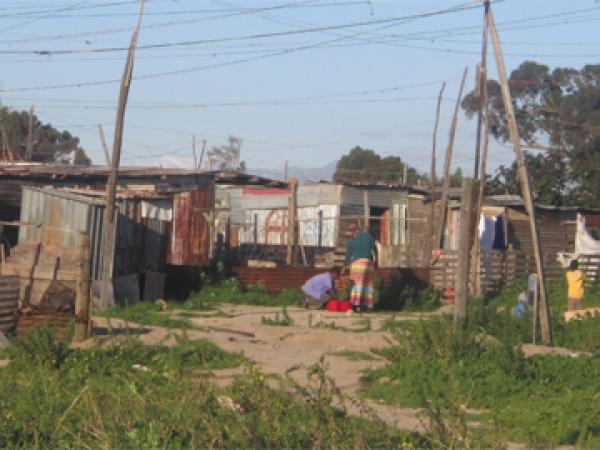Cape Town’s Informal Settlements keep growing

A survey done by the provincial department of human settlements showed that in 2010, the Cape Town Metro had almost as many informal settlements as the rest of the entire province.
There are approximately 193 000 households living in 204 informal settlements across Cape Town, some of which are built on wetlands.
Mayoral committee member for Human Settlements, Tandeka Gqada, said there were two factors which contributed to the high figure: population growth and urbanisation.
“Housing alone cannot deal with the challenge of urbanisation,” said Gqada. “When people arrive in the city they find that there are no houses for them; so they just build.”
Zanele Pondoyi came to Cape Town from the Eastern Cape to seek employment.
“I arrived in Cape Town in 2004. I lived with my aunt also here in Khayelitsha, in Kuyasa, I then moved to my place [a shack in Harare, Khayelitsha] in 2010. I got a plot, then bought a shack that was already built, made of wood, with a roof and everything. I paid R2000 for it, but I’m sure now it is more expensive. I am on a housing waiting list since 2006. I don’t really have a problem with living in a shack because the area I am in is not that congested and I have lived in a shack before.”
Gqada said that prior to 2009 when the City’s Anti-Land Invasion Unit was established, there was no structure in place to stop people illegally occupying City and Provincial land already allocated to residents on the housing waiting list. That list now stands at 400 000.
The unit demolishes illegal structures unless the structure is occupied by the owner, then a court order is needed.
Gqada said shack fires were a major hazard, but the biggest challenge for the City in informal settlements was sanitation because of the density. In these conditions, the City was not able to build normal flush toilets.
The existence of informal settlements has led to all kinds of tensions between residents.
“These people come straight from the rural areas. They build shacks here or drive amaphela (literally ‘cockroaches’; slang for small taxis). Look how dirty this place is,” said a clearly irritated resident from Gugulethu when she saw a woman appear from a shack in Kanana informal settlement to empty a basin on the pavement of the busiest road in Gugulethu.
Last week, Cape Town Mayor Patricia de Lille, said the City had prioritised a massive allocation of resources to improve living conditions in informal settlements, specifically in the provision of refuse removal, water, sanitation and electricity. An estimated budget of R292 million had been budgeted for electricity provision and R521 million for water and sanitation.
Pondoyi said she was lucky and had no complaints about electricity and sanitation because she had access to a flush toilet used by three households, and had electricity.
“Our toilet is always clean and it is in the yard so we do not go far, and we have no illegal electricity connections,” she said.
Next: “Every Scar Tells a Story” - Book launch
Previous: Celebrating Women’s month through music and poetry

This article is licensed under a Creative Commons Attribution-NoDerivatives 4.0 International License.


